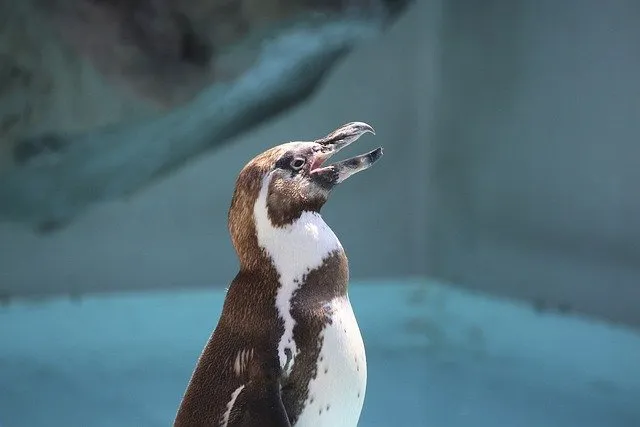
The Unique Adaptations of Penguins: How These Fascinating Birds Thrive in Cold Environments
Penguins are fascinating birds that have evolved several unique adaptations to thrive in cold environments, specifically in the icy regions of the Southern Hemisphere. These flightless birds have developed a range of physical and behavioral traits that allow them to survive and thrive in some of the harshest conditions on Earth.
Thick Insulating Feathers
One of the most well-known adaptations of penguins is their thick insulating feathers. These feathers are densely packed and overlap each other, forming a waterproof barrier that helps penguins stay warm and dry in frigid waters. The layer of air trapped between the feathers and the skin acts as an insulator, preventing heat loss and maintaining their body temperature.
Counter-Current Heat Exchange
Penguins have a unique circulatory system that allows them to regulate their body temperature efficiently. Their arteries and veins are located close together in their flippers and legs, enabling a counter-current heat exchange system. This system helps conserve heat by transferring warmth from the blood vessels returning to the body to the vessels carrying blood away from the body, minimizing heat loss in the extremities.
Specialized Glands
To cope with the saltwater they consume while hunting for fish, penguins have specialized salt glands located near their eyes. These glands help them excrete excess salt from their bodies, allowing them to maintain a balance of electrolytes and stay hydrated without ingesting too much salt.
Huddling Behavior
In the harsh conditions of the Antarctic, penguins exhibit a unique behavior known as huddling. By gathering in tightly packed groups, penguins can conserve body heat and shield themselves from the cold winds. The penguins on the outer layers of the huddle rotate to the center periodically, ensuring that all individuals benefit from the collective warmth.
Efficient Swimmers
While penguins may appear clumsy on land, they are incredibly agile and efficient swimmers in the water. Their streamlined bodies, flipper-like wings, and webbed feet allow them to navigate through the icy waters with ease. Penguins can dive to great depths in search of food, relying on their strong swimming abilities to catch fish and other prey.
In conclusion, penguins have evolved a remarkable set of adaptations that enable them to thrive in cold environments. From their insulating feathers and heat exchange system to their specialized glands and cooperative huddling behavior, these fascinating birds have conquered the challenges of living in some of the coldest regions on the planet. Studying penguins not only provides insights into their unique adaptations but also offers valuable lessons in resilience and survival in extreme environments.
